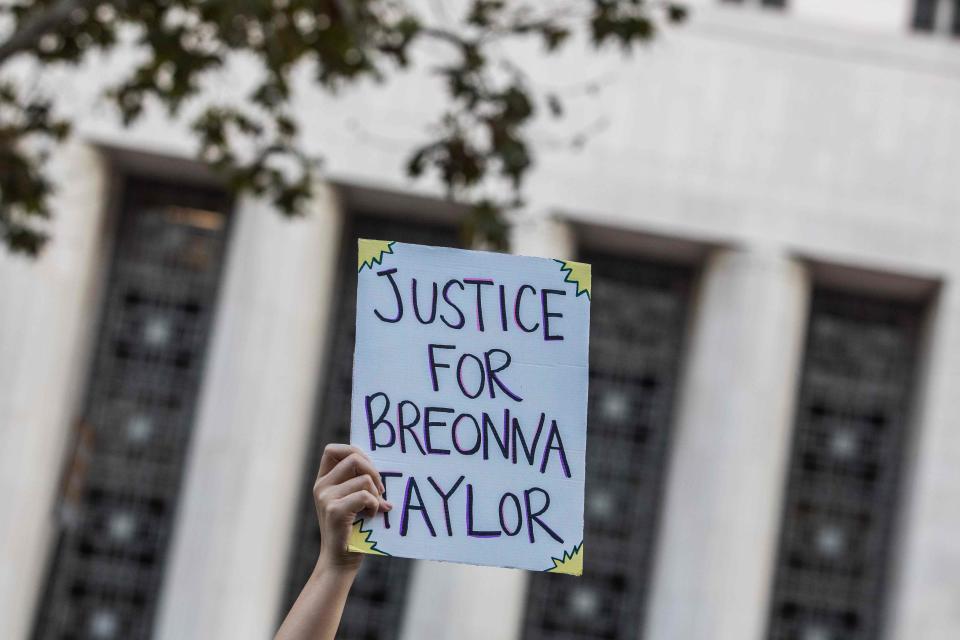Grand jury made right call in Breonna Taylor case
For months there has been a call for justice for Breonna Taylor, the young Black woman who was killed by police in her home during the execution of a search warrant that led to a tragic confrontation with Breonna’s boyfriend. Justice is an elusive principle that rarely means satisfaction. Many who call for justice specifically demanded that the three officers who fired their weapons all be charged with murder or manslaughter. The Grand Jury who reviewed the evidence, however, saw things differently. The recent announcement that they indicted only one officer, Brett Hankison, with wanton endangerment of Taylor’s neighbors, was received with dismay and disappointment.
Frustration and anger over this decision is understandable. No one can question the tragedy of this loss of life. But it is essential that the public assess this news through the proper lens, and that is the lens of due process which requires that guilt must be based on evidence, and that evidence must be strong enough to rebut the legal presumption of innocence beyond a reasonable doubt.
Search warrants are powerful and lawful
A search warrant is a powerful tool, issued to police only after the information they present to a judge indicates a fair probability they will find what they want to search for. It permits the police to enter, to snoop, and sometimes destroy. A search warrant that is issued by a judge must be based on probable cause. That important piece of paper gave police the authority to go to Breonna Taylor’s home and force entry. In short, the officer who was shot entering the apartment was there lawfully. The officers relied on the warrant. That is their job, and when they are confronted with gunfire or a threat of deadly force they are justified to respond in kind. Taylor’s boyfriend didn’t realize who the intruders were and felt he needed to act in self-defense. While that might have provided him a defense had he been charged with shooting the officer, it in no way negated the police justification.

Based on the evidence, the grand jury determined the use of force by the two officers in the home was legally justified self-defense. Even though the officers’ shots killed Breonna, because they were returning shots, they are not legally responsible for her tragic death. Second, while the grand jury did conclude Officer Hankison’s use of force was indiscriminate and reckless, medical and forensic evidence did not indicate any of his shots actually killed Breonna. Without that evidence, it would be impossible to convict Hankison of any criminal homicide.
Breonna Taylor: If you think Breonna Taylor's family got too much, how much is your daughter worth?
Thus, the evidence explains the grand jury’s indictment of Hankison for a crime far short of criminal homicide. Unlike the two officers who exchanged gunfire with the boyfriend in the apartment, Hankison reportedly went around the side or balcony of Taylor’s first floor apartment and shot blindly into a patio door and covered window. His indiscriminate shots penetrated the walls of neighboring apartments, with one of the bullets penetrating a pregnant neighbor’s home. Unlike his fellow officers, the grand jury concluded Hankison's indiscriminate use of force was reckless and unjustified.
The grand jury's decision was right, but disappointing to many
The grand jury appears to have made the right call, albeit disappointing to many. Any charges against the other officers would likely fail, something several legal experts already noted. Perhaps unsurprisingly, the views of the experts have been drowned out by the public dismay over what on the surface seemed reckless and outrageous. But in the final analysis, the evidence is insufficient to prove murder or manslaughter beyond a reasonable doubt.
Reform: Why support for criminal justice reform isn't the same as being anti-police
Breonna Taylor’s death was a tragedy, and to a degree, so was the injury to the officer. Both were victims of a deadly mistake. But this does not mean justice requires condemning the police for acting within the confines of the law. Of course, there have been instances where police have not faced legal consequences for unlawful conduct, but this case is different. The grand jury’s decision reinforced the importance of accountability while acknowledging that the police are also entitled to self-defense. Law enforcement agencies should review their warrant execution procedures in order to minimize the risk that others will fall victim to this type of tragic mistake in the future. If her death produces a review of the law and policies which permitted this tragedy in the first place, then justice — though imperfect — would be served.
Njeri Rutledge is a former prosecutor and works as a law professor at South Texas College of Law Houston. Follow her on Twitter: @NjeriRutledge. Geoffrey S. Corn is The Presidential Research Professor of Law at South Texas College of Law Houston in Houston Texas. His teaching and scholarship focuses on the law of armed conflict, national security law, criminal law and procedure, and prosecutorial ethics.
You can read diverse opinions from our Board of Contributors and other writers on the Opinion front page, on Twitter @usatodayopinion and in our daily Opinion newsletter. To respond to a column, submit a comment to letters@usatoday.com.
This article originally appeared on USA TODAY: Breonna Taylor: Prosecutors can't charge officers without evidence


